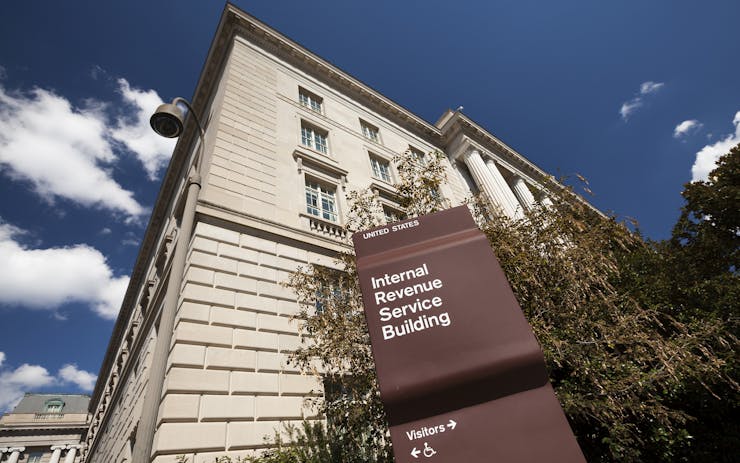The Internal Revenue Service has been quietly blocking the creation of nonprofit cannabis industry associations, specifically 501(c)6 organizations, since the beginning of 2018.
The policy change doesn't rescind the status of existing groups. But it prohibits any new ones from operating as nonprofits.
Groups classified as 501(c)6’s include nonprofit industry and political advocacy groups that practice lobbying and policy work.
In an Internal Revenue Bulletin issued on Jan. 2, 2018, the IRS announced that the agency had amended its rule regarding the nonprofit status of groups whose main purpose is to improve the business conditions of the cannabis industry. The IRS did not mention the word “cannabis” in the announcement, but it’s pretty clear the change only affects one industry:
“The Service will not issue a determination letter when the request concerns an organization whose purpose is directed to the improvement of business conditions of one or more lines of business relating to an activity involving controlled substances (within the meaning of Schedule I and II of the Controlled Substances Act), which are prohibited by Federal law—regardless of its legality under the law of the state in which such activity is conducted.”
‘Determining’ Nonprofit Status
A determination letter is a document that confirms an organization’s tax-exempt status in the eyes of the IRS. An organization obtains the letter by submitting an application, which is then reviewed by an IRS examiner. The new rule prohibits examiners from issuing a determination letter for nonprofit groups focused on the cannabis industry—but it does not rescind the nonprofit status of those groups already operating under a preexisting IRS determination letter. Once obtained, the IRS letter usually does not have to be renewed.
The federal tax agency hasn’t called out any specific organizations, but groups like the National Cannabis Industry Association (NCIA), the Washington Cannabusiness Association, Colorado’s Marijuana Business Association (MJBA), the Marijuana Industry Group, and the Minority Cannabis Business Association could fall within the definition of the new rule. At least two of those groups, the NCIA and the Minority Cannabis Business Association, obtained their IRS nonprofit determination letters years ago.
The NCIA received its letter of determination from the IRS in 2010, but they are tracking the issue closely. While the NCIA “always remains nimble,” it has no immediate plans to make changes to its fundraising or financing strategies, said NCIA co-founder and executive director Aaron Smith.
“We strongly oppose the rules change because legal cannabis businesses and professionals have a fundamental, constitutional right to associate and engage in free speech activities,” he said. “Associations are simply the vehicles professionals use to collectively express those constitutional rights. Cannabis-related associations that comply with the law should be afforded the same treatment by the IRS as any other lawful nonprofit entity.”
An Expansion of 280E?
Kristi Kelly, executive director of the Marijuana Industry Group, said, “We haven’t seen this (new IRS rule) before and we still need to study it. This amendment feels like a possible expansion of the interpretation of Section 280E of the IRS tax code, which prohibits taking tax deductions associated with the sale of Schedule 1 substances.”
The Marijuana Industry Group doesn’t rely on donations, Kelly said, but a philanthropic group might be more impacted by the rule change. “Either way, this expanded interpretation would be a tough thing for any nonprofit, most of which operate on modest budgets.”
The new rule is not expected to have an immediate impact on cannabis-related nonprofit groups, but is likely to hamper the establishment of nonprofit industry groups in emerging legal adult-use markets like Massachusetts, and medical markets like Pennsylvania and Ohio.
“The current administration continues to act in direct contradiction to what the majority of Americans want,” said Krista Whitley, CEO of Nevada-based Altitude Products. “Blocking nonprofit cannabis industry associations who are working to advocate for responsible consumption of this powerful plant medicine makes absolutely no sense.”





